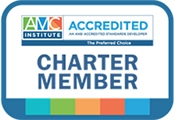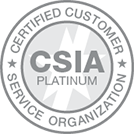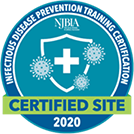Beware selling out your organization or compromising the value of your communications
Your members are a valuable asset that other groups want to get in front of. If you publish a newsletter or magazine, you may have gotten emails or phone calls pitching an article about a company’s new product or service that might be of interest to your members. You may often say no, which, in many cases is the right answer. But when do you say yes?
When it’s Relevant
It’s an obvious answer, but when a content-strapped staffer just needs one more thing to fill the page, it’s mighty tempting to grab the new article sent by a firm they’ve used before. It went over well then, why not now? Often, the marketers pitching the content don’t have nearly as intimate an understanding of your members’ industry as you do, and no one gets it better than actual members. Ask a dedicated volunteer to vet third-party content and make the call before anything goes into your member communications.
When it’s Not Promotional
Plenty of organizations are willing to pick up something that interests members, even if there’s a promotional component to the piece, but beware. Readers are incredibly smart and do not like a marketing pitch in what they thought was regular editorial content. This tactic can compromise readers’ trust and the overall perception of the organization and publication. In addition, promotional content can imply endorsement—a sensitive and often troublesome issue for most organizations. Develop an editorial policy that clearly outlines what will and won’t be accepted for publication. And, as previously mentioned, involve a volunteer to vet content and decide whether promotional messaging is too close for comfort.
When it’s Beneficial for Readers
Marketers and PR pros hate to think that the content they painstakingly crafted for publication isn’t beneficial to readers. Who wouldn’t want to read about the new Product 3000 from ACME Co.? There’s no shame in noting that members just aren’t going to find value in an article all about a single product or company. Let’s give credit where credit is due: If they’re truly interested, they’ll find the information on their own. Any content accepted for publication should educate readers without a product or service pitch, and allow them to do the work to go learn more from the company if they want. I generally accept content that includes quotes by someone at a manufacturer or service provider, as long as they’re on topic and not talking about their product. Example: I did an article about a specific kind of material used in HVAC equipment, and included information about the material from a prominent manufacturer. At the end of the day, they’re an expert, too, and have valuable knowledge and insight that members might benefit from. However, here again is where I rely on volunteers to determine whether the content is actually beneficial and informative.




